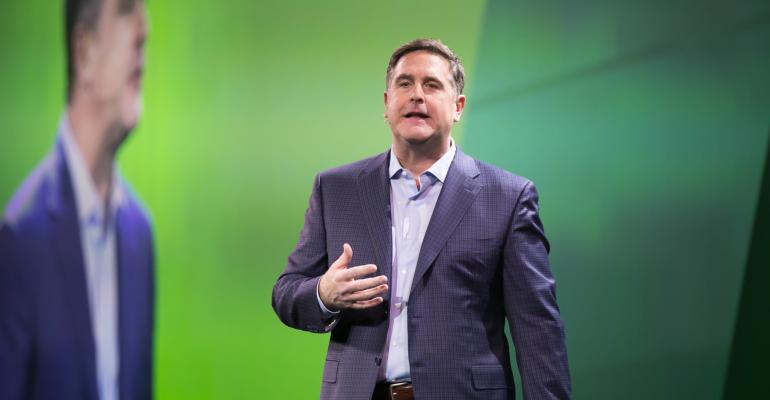Thomas Nally, president of TD Ameritrade Institutional, kicked off the brokerage’s National LINC conference on Thursday by reinforcing its investment and belief that technology will continue to change wealth management in 2018. But he also reassured the audience of roughly 3,000 registered investment advisors that TD Ameritrade is not out to replace them.
“Technologies are going to have a lot of impact on our businesses” but “it’s important that we never ever forget that it’s people that ultimately drive this business,” Nally said.
More is expected of advisors than ever, Nally told the crowd. Beyond investment management and planning and the human element that even some automated advice companies like Betterment have added, is in demand.
“You don’t just give them peace of mind. In a lot of ways, you are their peace of mind,” Nally said. “Technology will never be able to care for a client or comfort a client” and TD Ameritrade is interested in technology that will assist in that.
This year, the brokerage is focused on big data (“the more you know about your business, the easier it is to make decisions”) and improving its data visualizations for its third-party technology platform, Veo One, Nally said. TD Ameritrade is also working on artificial intelligence and machine learning and rolling out a refreshed version of its client-facing interface that RIAs can customize.
TD Ameritrade expects to nearly double the number of third-party firms capable of integrating with its Veo One platform in 2018, to roughly 4,000. There were also 74 vendors showcasing products and features, some that haven’t even been made available yet to advisors, at this year’s conference, the most ever.
“We are always going to be focused on building new stuff for TD Ameritrade,” Nally said. “But we are smart enough to know that we are not going to build everything.” He likened the the integrations to third-party applications on the iPhone, which are tremendously popular and part of what makes Apple’s device appealing to consumers.
Nally encouraged advisors to embrace the changes more technology will bring and reminded the crowd that it has adapted in the past and remained relevant. Rebalancing, he said, used to require a whole team diving into spreadsheets for a day. Now, it’s done across a book of clients with the push of a button.
“Change doesn't have to be intimidating or frustrating,” Nally said. “It can and should be exciting and full of opportunity.”





